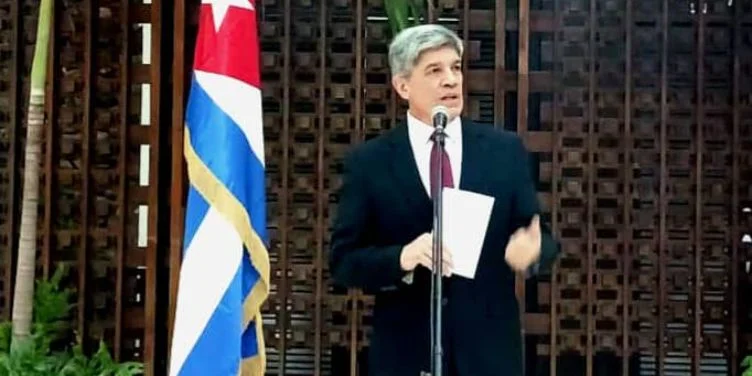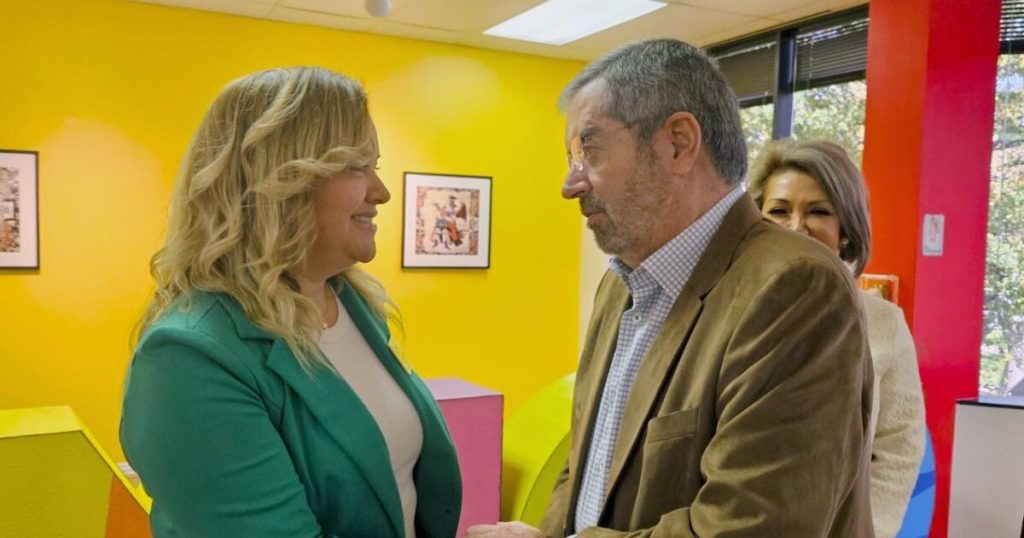MIAMI, United States. – The Vice Minister of Foreign Affairs of the Cuban regime, Carlos Fernández de Cossío, assured this Wednesday ―after concluding the fifth round of migration talks between the governments of Cuba and the United States since 2022― that the “mass deportations” announced by the president-elect of the American country, Donald Trump, are not “realistic.”
“It is not realistic to think that a mass deportation will occur. “These deportations would uproot people who have made their lives in the US.” stated Fernández de Cossío.
During his press conference, the official also specified that in the round of talks, the last under the Biden Administration, there was no talk of mass deportations.
The VM @CarlosFdeCossio He stated that in the dialogue there was no talk of mass deportations:
“It is unrealistic to think that a mass deportation will occur. These deportations would uproot people who have made their lives in the United States.”
3/3 pic.twitter.com/wo31GZfoPs
— Chancellery of Cuba (@CubaMINREX) December 5, 2024
This Wednesday, representatives of both governments met in Havana, as part of a bilateral mechanism that resumed in 2022 between Havana and Washington and that is stipulated to take place every six months alternately between both countries.
The meeting was headed by the vice chancellor of the Cuban regime, Carlos Fernández de Cossío, and the deputy undersecretary of the United States Department of State, Eric Jacobstein. According to the Island official, the dialogue was “constructive” and “frank.” “We attach great importance to this type of exchange and the cooperation that should result,” Fernández de Cossío assured journalists, according to a report from the AP agency.
During the meeting, the Cuban side reiterated its willingness to comply with current immigration agreements and expressed its concern about human trafficking and the “aggressive” treatment that – it stated – some of its citizens receive in US airports. Likewise, Fernández de Cossío requested the reestablishment of the issuance of nonimmigrant visas at the US Consulate in Havanawhich are currently processed in third countries, mainly in Guyana.
In the social network X, Fernández de Cossío he complained that “the persistence of the economic blockade, designed to depress the standard of living of Cubans, and the policy of privileging the entry of Cubans who migrate by any means, constitute the fundamental contradiction with the bilateral migration agreements [entre] Cuba and the United States.
According to a statement from the United States Embassy in Havanathe delegation of that country addressed “key issues related to collaboration in immigration procedures and highlighted the challenges to achieving the objectives of the Agreements [establecidos en 1984]”.
“During the talks, the United States raised with the Cuban Government important American interests, including facilitating family reunification, discouraging irregular migration, and improving respect for human rights and fundamental freedoms in Cuba,” the statement said. the diplomatic headquarters.















